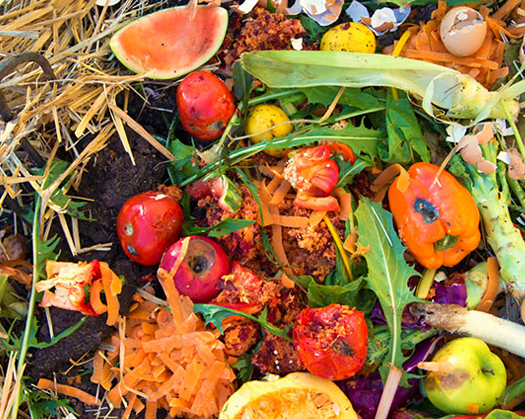Composting

Why is it Important?
Food scraps and organic waste make up a significant portion of campus waste—and when sent to landfills, this material breaks down anaerobically, releasing methane, a greenhouse gas over 25 times more potent than carbon dioxide. By composting, LMU not only reduces harmful emissions but also transforms waste into a valuable resource: nutrient-rich soil used in campus landscaping and local gardens.
What is LMU Doing?
At LMU, composting is a core component of our commitment to sustainability and environmental justice. Food scraps and organic waste make up a significant portion of campus waste—and when sent to landfills, this material breaks down anaerobically, releasing methane, a greenhouse gas over 25 times more potent than carbon dioxide. By composting, LMU not only reduces harmful emissions but also transforms waste into a valuable resource: nutrient-rich soil used in campus landscaping and local gardens. In summer 2025, LMU is expanding its impact by introducing an in-vessel composting system, allowing for faster, cleaner, and more efficient on-site processing of organic waste. This advancement supports a closed-loop system that nurtures the environment, diverts waste from landfills, and aligns with LMU's mission to care for our common home.
Benefits of Composting
Cost Benefits
- Reduces costs by lowering the need for water, chemical fertilizers, and pesticides.
- Creates a marketable product: compost can be sold or used as a low-cost alternative to synthetic soil amendments and landfill cover.
- Extends landfill lifespan by diverting organic waste, which also helps reduce the cost of soil remediation efforts.
Enriches Soil
- Revitalizes poor soil by fostering beneficial microorganisms that break down organic matter into a rich, nutrient-dense material that improves soil health and moisture retention.
- Reduces or eliminates the need for chemical fertilizers.
- Promotes higher crop yields and healthier plant growth through improved soil structure and nutrient availability.
Prevents Pollution
- Reduces methane emissions and leachate formation by diverting organics from landfills.
- Improves stormwater quality by filtering pollutants and reducing runoff contamination into nearby waterways.
In-Vessel Composting
Loyola Marymount University has committed to adopt in-vessel composting, the practice of composting materials within an enclosed environment, such as a drum, silo, bin, or other container. The machinery to achieve this is from Big Hanna, a brand committed to making composting easy and accessible to all. The goal is to have the infrastructure in place during the 2024-25 academic year to process organic waste from campus dining facilities, before expanding it to residence halls and offices in 2025-26.